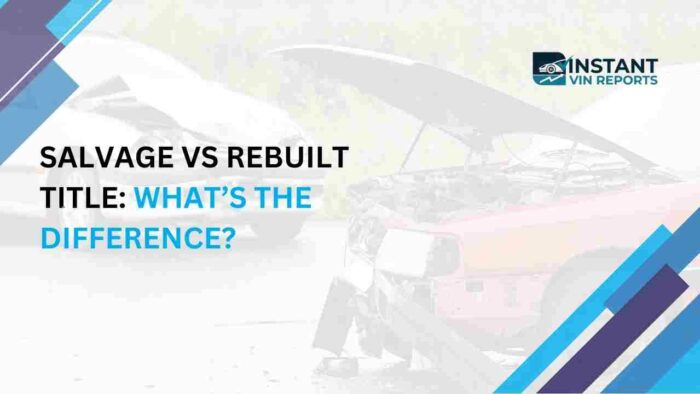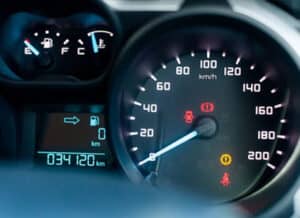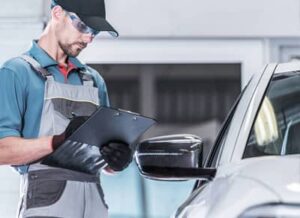When shopping for a used car, you may encounter vehicles with either salvage or rebuilt titles. These designations raise questions about a car’s history and condition.
While these vehicles often come with a lower price tag, understanding their implications is crucial before committing to a purchase. Let’s explore the differences between salvage and rebuilt titles and how to decide which, if any, might be right for you.
What is a Salvage Title?
A salvage title is assigned to a vehicle that has suffered significant damage, typically from accidents, natural disasters, or theft. When the repair costs exceed a certain percentage of the car’s market value—usually between 70% and 90% depending on the state—the insurance company declares it a total loss.
Once the insurance company writes it off, the vehicle receives a salvage title. Cars with this designation cannot legally operate on public roads until they undergo repairs and pass inspections. At this stage, a salvage title serves as a red flag indicating the car’s troubled past.
To check the potential market value of salvage cars, understanding their history is key.
Related: How to Check Market Value of Salvage Cars
What are Rebuilt Titles?
A rebuilt title is granted to a vehicle that was previously marked as salvage but has since been repaired and certified as roadworthy. After completing extensive repairs, the vehicle must pass a state inspection to confirm it meets safety standards. Once it clears the inspection, it’s reclassified with a rebuilt title.
Rebuilt cars can legally return to the road, but their history still affects their resale value and insurability. This designation assures potential buyers that the vehicle, while once severely damaged, has been restored to a functional condition.
For a deeper understanding of rebuilt titles, explore What’s a Rebuilt Title? All You Need to Know.
Key Differences Between Salvage and Rebuilt Titles
The primary difference lies in the roadworthiness of the vehicle:
- Salvage Title: The car is not roadworthy and requires significant repairs.
- Rebuilt Title: The car has been repaired and certified as safe for use.
Additionally, the cost and effort required to bring the vehicle to a usable state differ. A salvage car might cost less upfront but will demand significant repair work. A rebuilt vehicle, although pricier, spares you the uncertainty of restoration and inspection.
Pros and Cons of Buying a Salvage or Rebuilt Title Vehicle
Salvage Title:
Pros:
- Lower purchase price.
- Potential for parts salvaging.
Cons:
- High repair costs.
- Uncertainty about hidden damage.
- Cannot be driven until repairs are complete.
Rebuilt Title:
Pros:
- Roadworthy and inspected.
- Still cheaper than clean-title vehicles.
Cons:
- Reduced resale value.
- Limited financing and insurance options.
Both options can save money upfront but come with risks. Thorough research is essential before making a decision.
How Salvage and Rebuilt Titles Affect Insurance, Financing, and Resale Value
Insurance: Many insurance companies hesitate to offer full coverage for salvage or rebuilt vehicles. Some may only provide liability insurance.
Financing: Lenders often shy away from vehicles with these titles, seeing them as high-risk investments. If financing is available, expect higher interest rates or a lower loan amount.
Resale Value: Cars with salvage or rebuilt titles have significantly reduced resale values. Buyers remain wary of their history, which makes them harder to sell later.
When buying such a vehicle, consider these financial implications carefully.
Tips for Inspecting a Salvage or Rebuilt Title Vehicle
- Get a Professional Inspection: Hire a trusted mechanic to examine the vehicle for lingering damage or subpar repairs.
- Check Alignment and Frame Damage: Frame integrity and proper alignment ensure safety and drivability.
- Verify the Repair Quality: Ensure the car meets the standards set during its inspection.
- Review the Title and Documentation: Confirm the title accurately reflects the vehicle’s status.
To simplify the inspection process, Instant VIN Reports offers detailed history reports to uncover key details about a vehicle’s past.
The Importance of Checking a Vehicle’s History Before Buying
A comprehensive vehicle history report is non-negotiable when buying a salvage or rebuilt title car. It reveals:
- The extent of past damage.
- Types of repairs completed.
- Ownership history.
Services like Instant VIN Reports provide accurate, detailed data that help buyers make confident decisions. Accessing a VIN decoding or vehicle history report ensures you know exactly what you’re purchasing.
Check the Full History to Avoid Hidden Salvage or Rebuilt
Instant VIN Reports specializes in providing essential tools for used car buyers. With their VIN decoding, window sticker lookups, and vehicle history services, you gain clarity on a vehicle’s background. This information is invaluable when evaluating salvage or rebuilt title cars.
Buying a salvage or rebuilt title car can offer cost savings, but it comes with risks. By understanding the differences between these titles, inspecting vehicles thoroughly, and reviewing their histories, you can make an informed decision.
Let Instant VIN Reports guide you with reliable data and insights to navigate this process confidently. Whether it’s a salvage or rebuilt title vehicle, the right tools and knowledge ensure a safe purchase.










